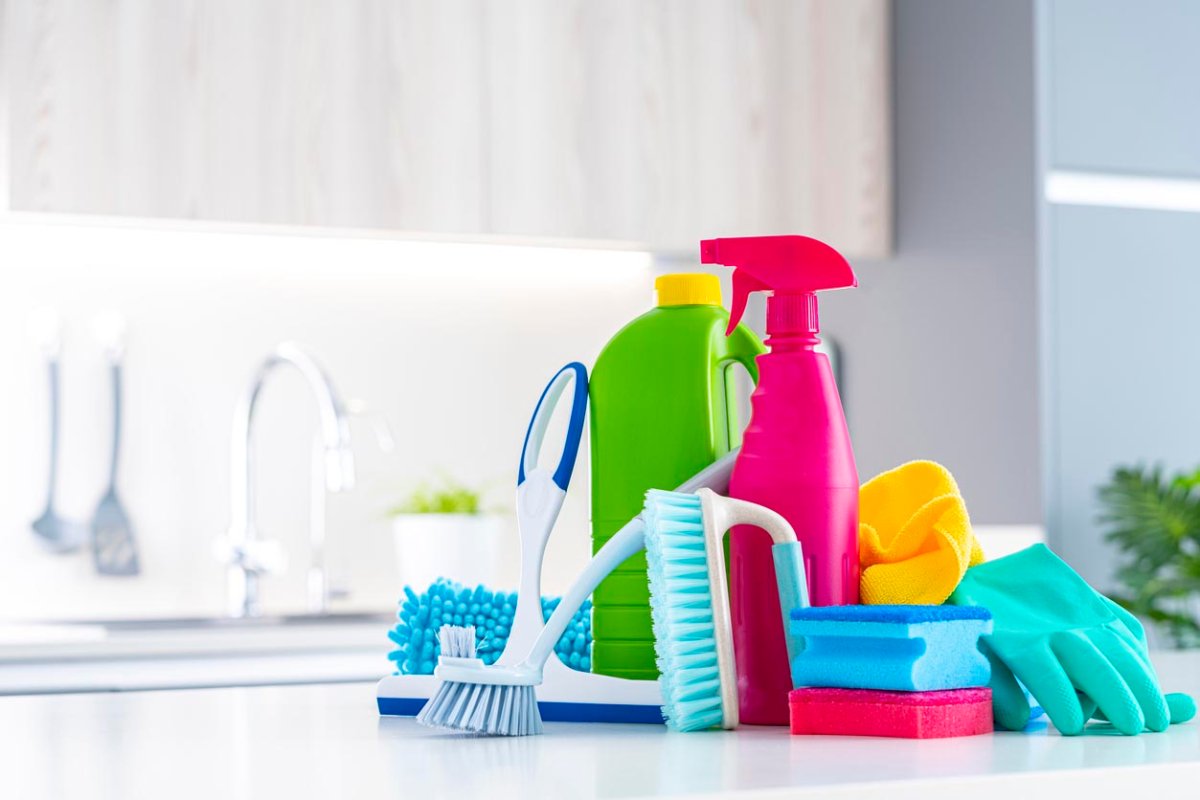We may earn revenue from the products available on this page and participate in affiliate programs. Learn More ›
Few people enjoy cleaning, and when products don’t work or require more elbow grease than advertised it becomes even more frustrating. That’s why we scoured the marketplace and discovered the top products that will keep your home sparkling and cut down on cleaning time. While these cleaners are powerful, it doesn’t mean that they’re all loaded with toxic chemicals and harsh scents. You can feel good that these formulas won’t harm your family’s health or the planet. Keep reading to find the 11 best cleaners for the home.
Related: 11 Ultra Powerful Products That Cut Your Cleaning Time in Half
Bon Ami
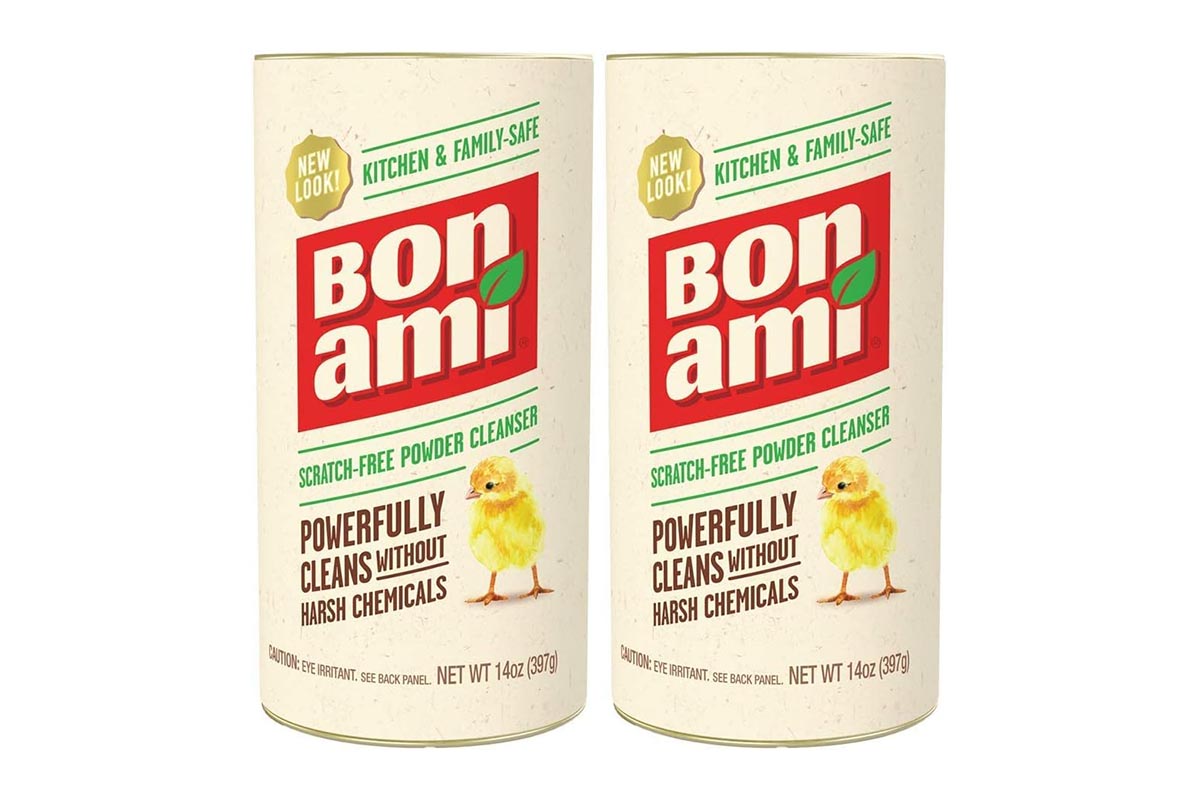
A favorite scouring powder for most household uses, Bon Ami will get the job done—without fragrance, dye, or toxins. Instead, the formula is a special blend of minerals including limestone, feldspar, and baking soda. Since these are mild abrasives, Bon Ami is not designed for cleaning stainless steel, and be sure to spot test other surfaces to make sure it won’t scratch. Other than that, you can use Bon Ami to clean almost anything, from pots and pans (it works wonders on burned food) to garage floors and patio furniture.
Get a two-pack Bon Ami at Amazon for $6.80
Related: 20 Crazy Cleaning Tips That Actually Work
Magic Eraser
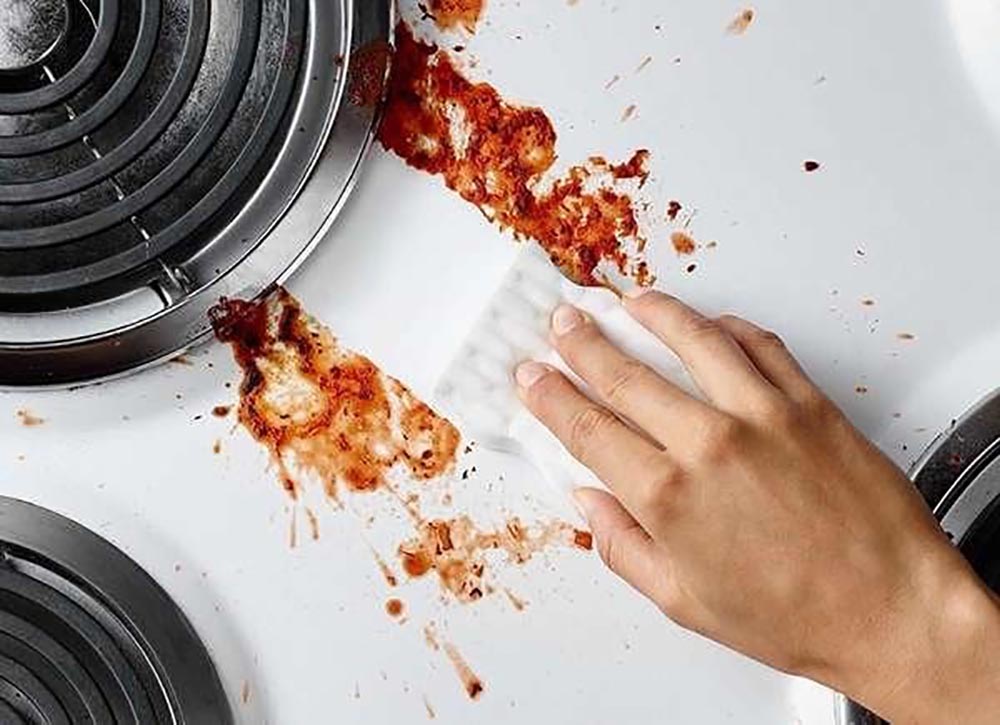
Mr. Clean’s Magic Erasers use the m-word for a reason. Just add a bit of water to the sponge-like pad, apply to your dirty surface, and watch as the grime magically disappears. So how does it work? The brand’s proprietary Durafoam material uses water-activated micro-scrubbers, which suck dirt and scrum right out of most surfaces, from drywall to tile. Be careful on marble and granite, however, as these mild abrasives can still cause dulling and scratching. A perfect replacement for bleach and other harsh chemicals in your kitchen and bathrooms.
Get Mr. Clean Magic Erasers at Target for $2.99.
Related: 30 Spring Cleaning Tasks You Can Tackle With Natural Ingredients
Citric Acid
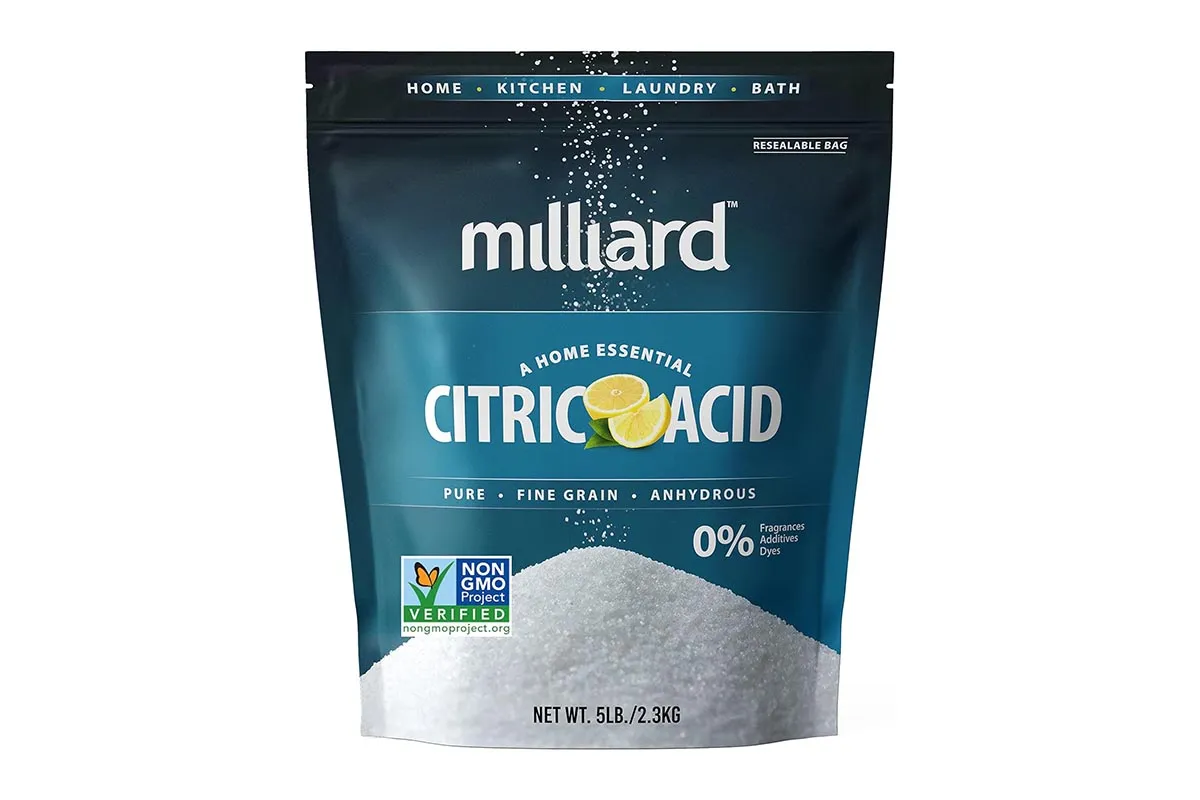
Citric acid is one of the best all-purpose cleaning agents: powerful enough to kill mold, remove soap scum, and even tackle rust. Make your own easy-as-pie, tough-as-nails home cleaner with citric acid: boil 2 cups of water, then add 2 tablespoons of citric acid. Allow the mixture to cool, apply to a clean cloth, and wipe down any dirty, scummy, scaly surface. Pour what remains down your toilet to disinfect.
Get Milliard Citric Acid at Amazon for $9.59.
Related: 20 Clever Household Uses for Lemons
Dr. Bronner’s
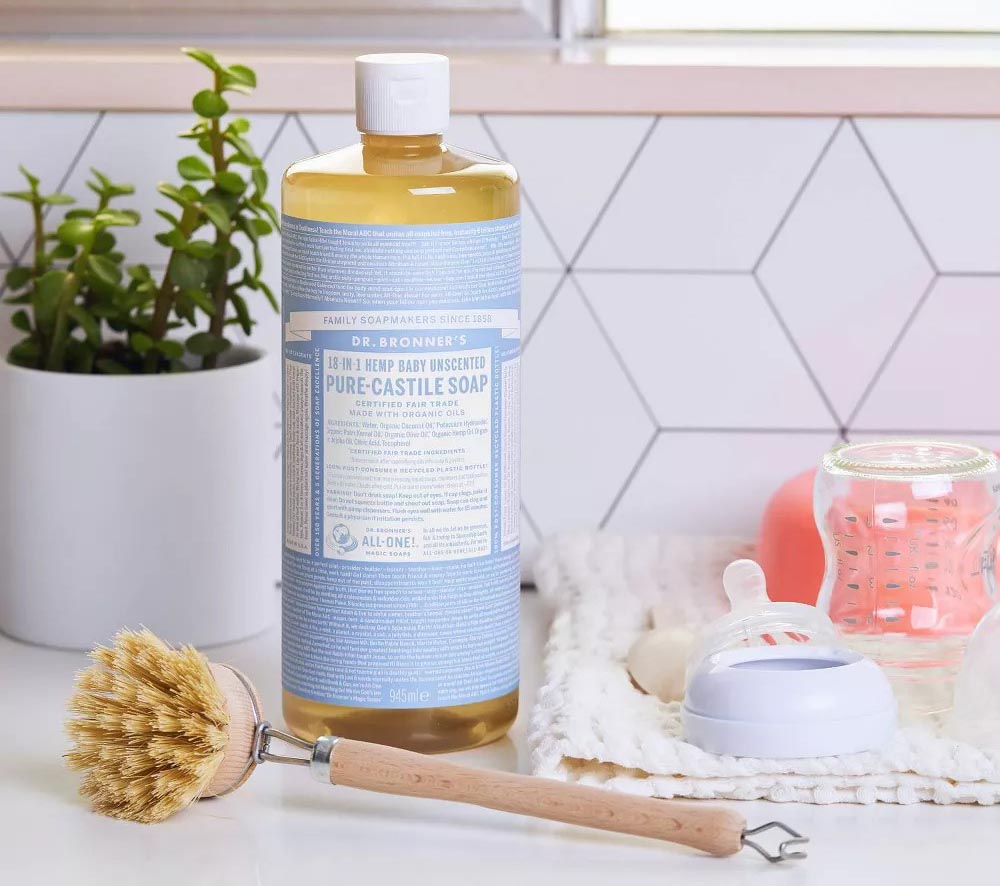
Dr. Bronner’s is another “magic” cleaning product that is both gentle and powerful. You can use this pure Castile soap on your pets, as hand soap, and even as shampoo. It also serves as an excellent dish and laundry soap. Dilute your Dr. Bronner’s in water, since it comes highly concentrated—3x more cleaning power than average soap. In addition to efficient cleaning, the company is committed to healthy people and planet. All products are packaged in 100% recycled plastics, and never tested on animals.
Get Dr. Bronner’s Castile Soap at Target for $13.99.
Related: 12 Secret Uses for Dr. Bronner’s Soap
Pure Cold Pressed Orange Oil Concentrate
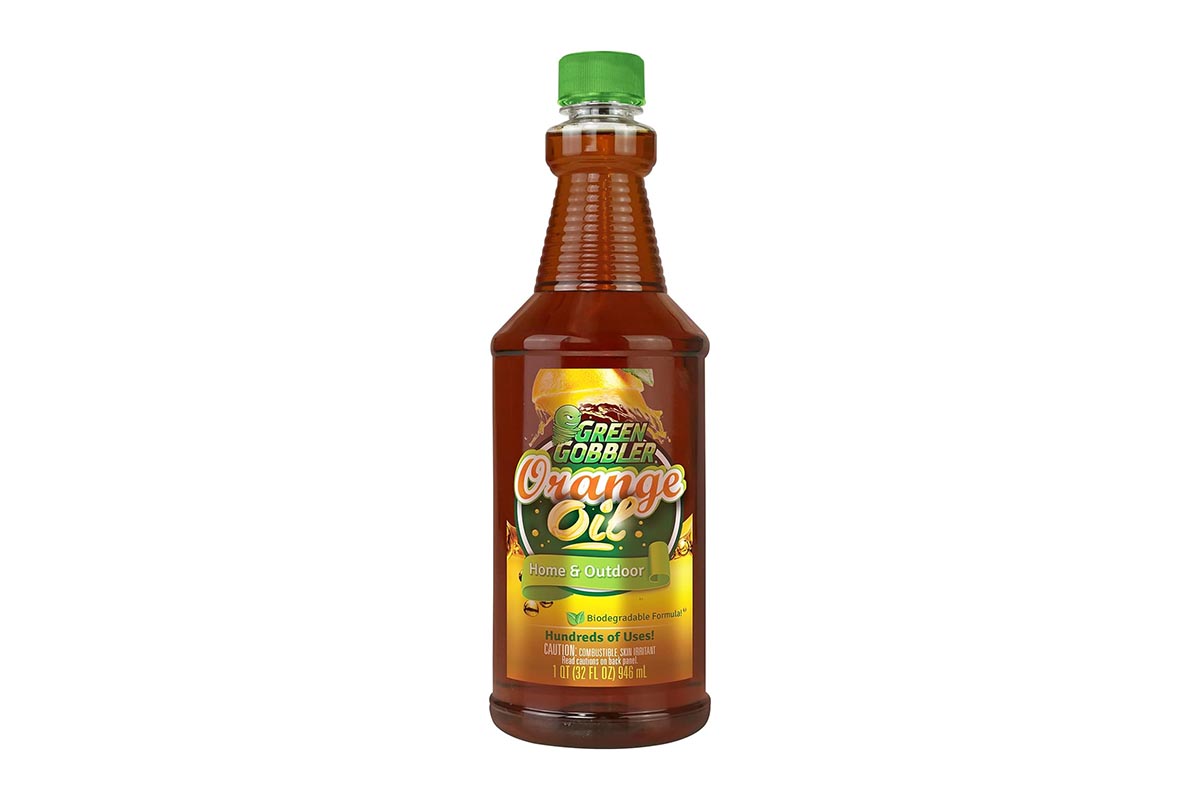
Did you know that orange oil can clean practically anything? This pure cold-pressed oil contains high quantities of D-Limonene (80-95%), a natural, non-toxic solvent and degreaser. As a bonus, it’s effective on almost every surface, including metal, glass, granite, porcelain, concrete, and plastic. Orange oil also helps restore and clean wood floors and furnishings. If you love the smell of fresh oranges, you’ll love all-natural orange oil for cleaning and freshening your home.
Get Cold Pressed Orange Oil Concentrate at Amazon for $23.99.
Related: 20 Crazy Cleaning Tips That Actually Work
Method Cleaning Products Squirt + Mop Wood Floor Cleaner
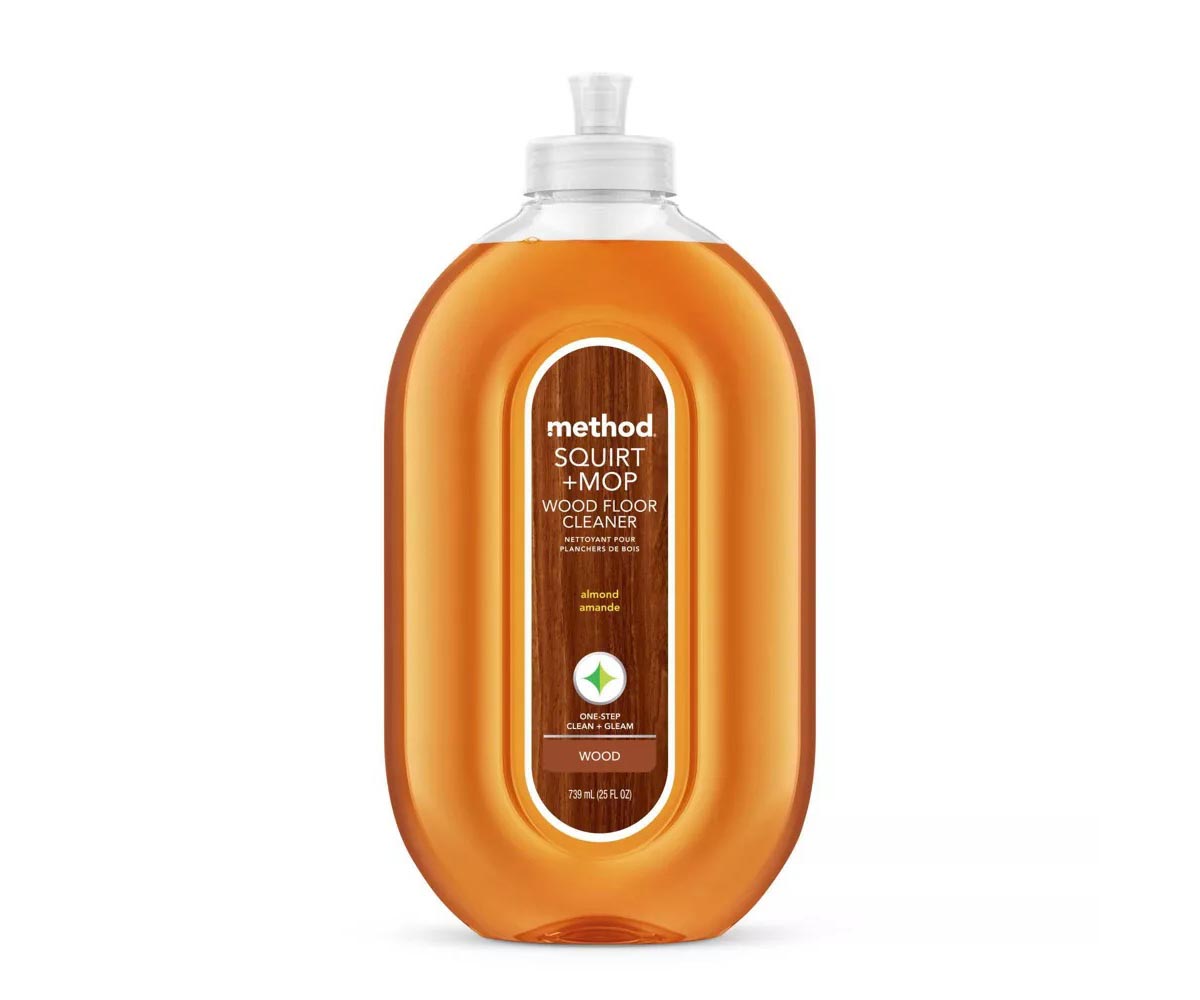
The name says it all: just squirt and mop the mess away. No rinsing or waxing required! For all your wood floor clean-up needs, Method’s Squirt + Mop will serve you well. This plant-based cleaner is designed for both sealed hardwood and laminate floors. Choose from four naturally-scented formulas, including almond, ginger-yuzu, lemon-ginger, and spearmint-sage.
Get Method Cleaning Products Squirt + Mop Wood Floor Cleaner at Target fo $4.99
Related: 12 Sneaky Ways to Get New Floors for Under $50
Better Life All-Purpose Cleaning Spray
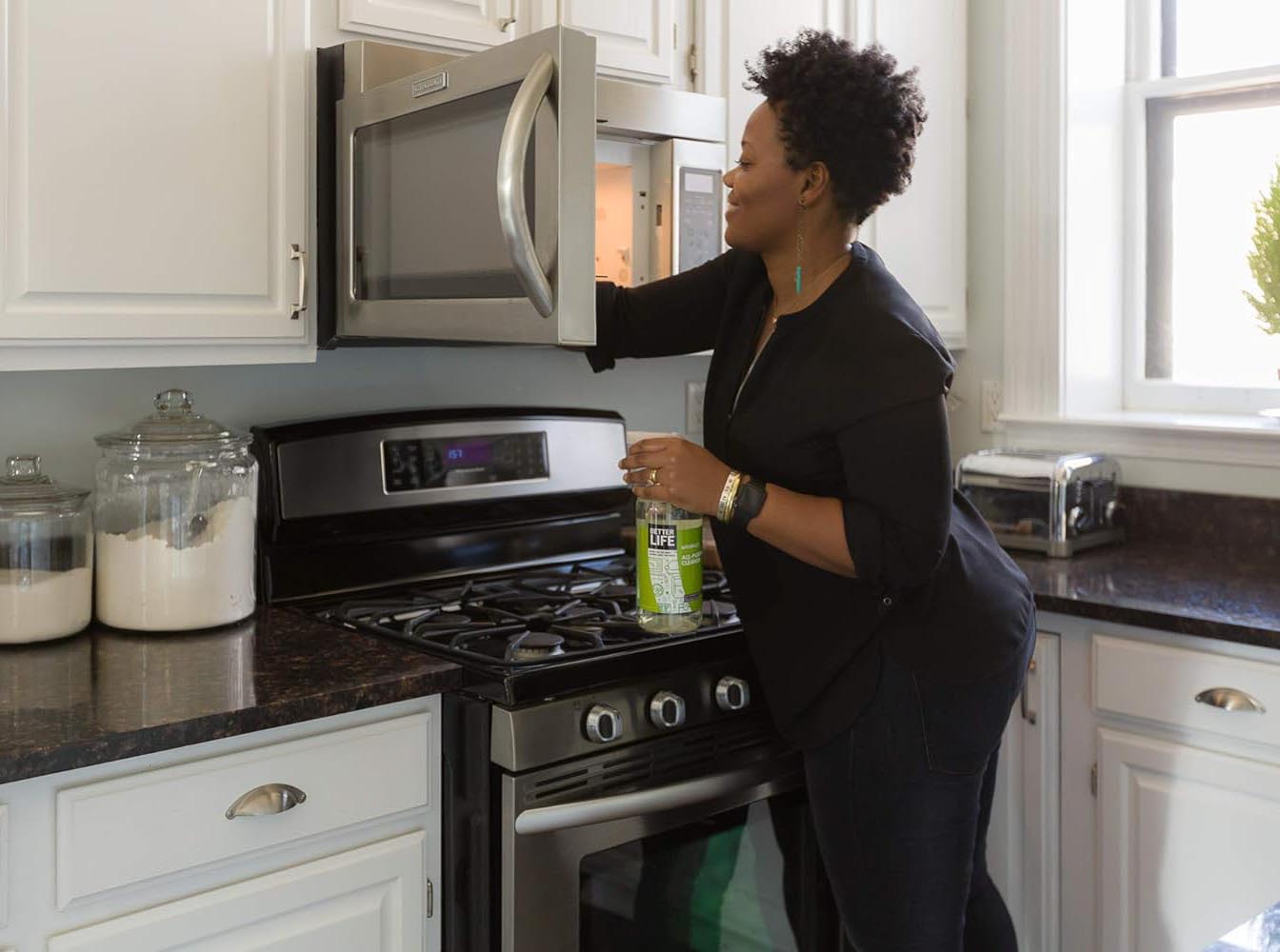
There are dozens and dozens of cleaning sprays on the market. So what sets Better Life apart? It pretty much does everything—and has a stellar record for being eco-friendly and health-friendly to boot. Free of VOCs, alkylphenol surfactants, and petroleum, Better Life’s all-purpose spray is safe and effective for all home surfaces—even your children’s toys—while still being a mighty cleaner.
Get Better Life All-Purpose Cleaning Spray at Amazon for $6.99.
Related: 11 Ultra Powerful Products That Cut Your Cleaning Time in Half
Biokleen Bac-Out Stain+Odor Remover

Science is the secret ingredient in Biokleen’s Bac-Out. Harnessing the power of live enzyme cultures, botanicals, and plant-based surfactants, Biokleen is effective at devouring stains and odors—without harming fabrics or carpeting. Pet accident? No problem. The same goes for wine spills, dirty laundry, stinky drains, and more. In fact, even commercial carpet cleaners use Bac-Out as a non-toxic alternative to heavy-duty chemicals.
Get Biokleen Bac-Out Stain+Odor Remover at Target for $7.99.
Related: 7 Unusual Tricks for Your Cleanest Floors Ever
Goo Gone
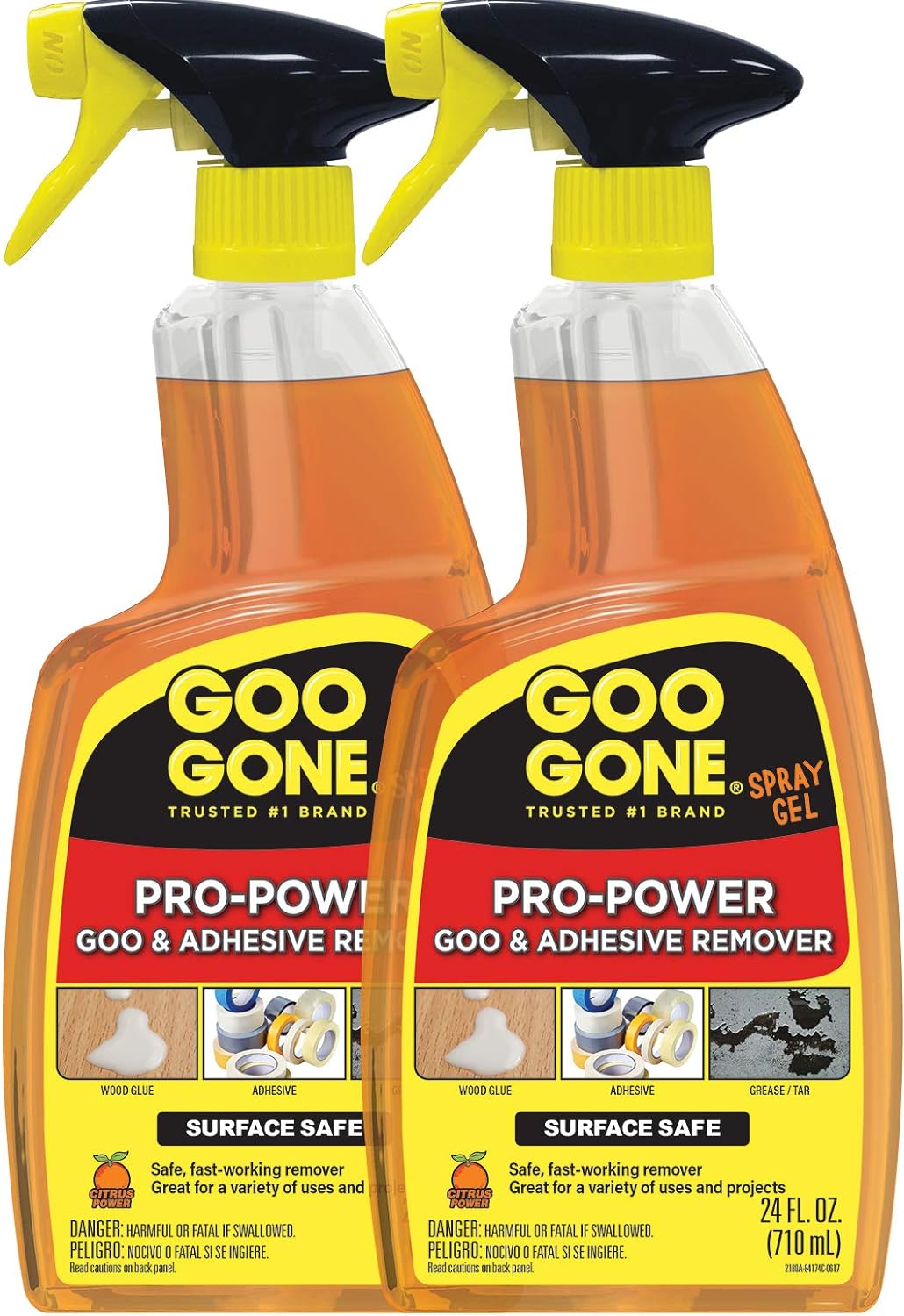
Thanks to the powers of citric acid, Goo Gone is another winning grime fighter that halves cleaning time. For parents of young children in particular, Goo Gone is a household essential. It works on stickers, wax, markers, crayons, glue, glitter, gum, and all the wonderful sticky substances your child may discover. It’s safe on hard surfaces as well as carpets and fabrics.
Get Goo Gone at Amazon for $8.70.
Lemi Shine Natural Dishwasher Detergent Pods
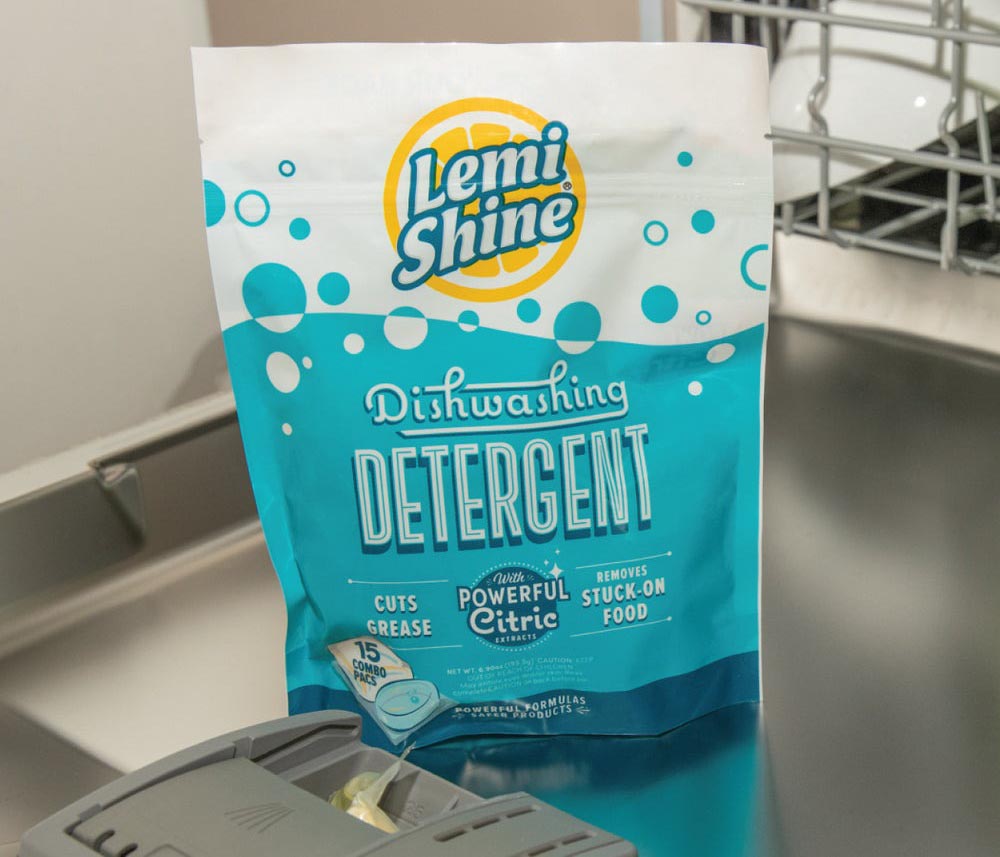
Citrus wins again! We applaud Lemi Shine’s Natural Dishwasher Pods for their lemon-fresh scent and mess-free design. Thanks to natural citrus extracts, your dishes will be disinfected and sparkling, without phosphates, chlorine, or artificial fillers and fragrances. The pods are even equipped to dissolve calcium and magnesium particles in water, leaving dishes streak-free and spotless.
Get Lemi Shine Dishwashing Detergent at Lemi Shine for $5.79.
Related: 14 Things You Should Always Keep Near the Kitchen Sink
Seventh Generation Fresh Mint Scent Toilet Bowl Cleaner
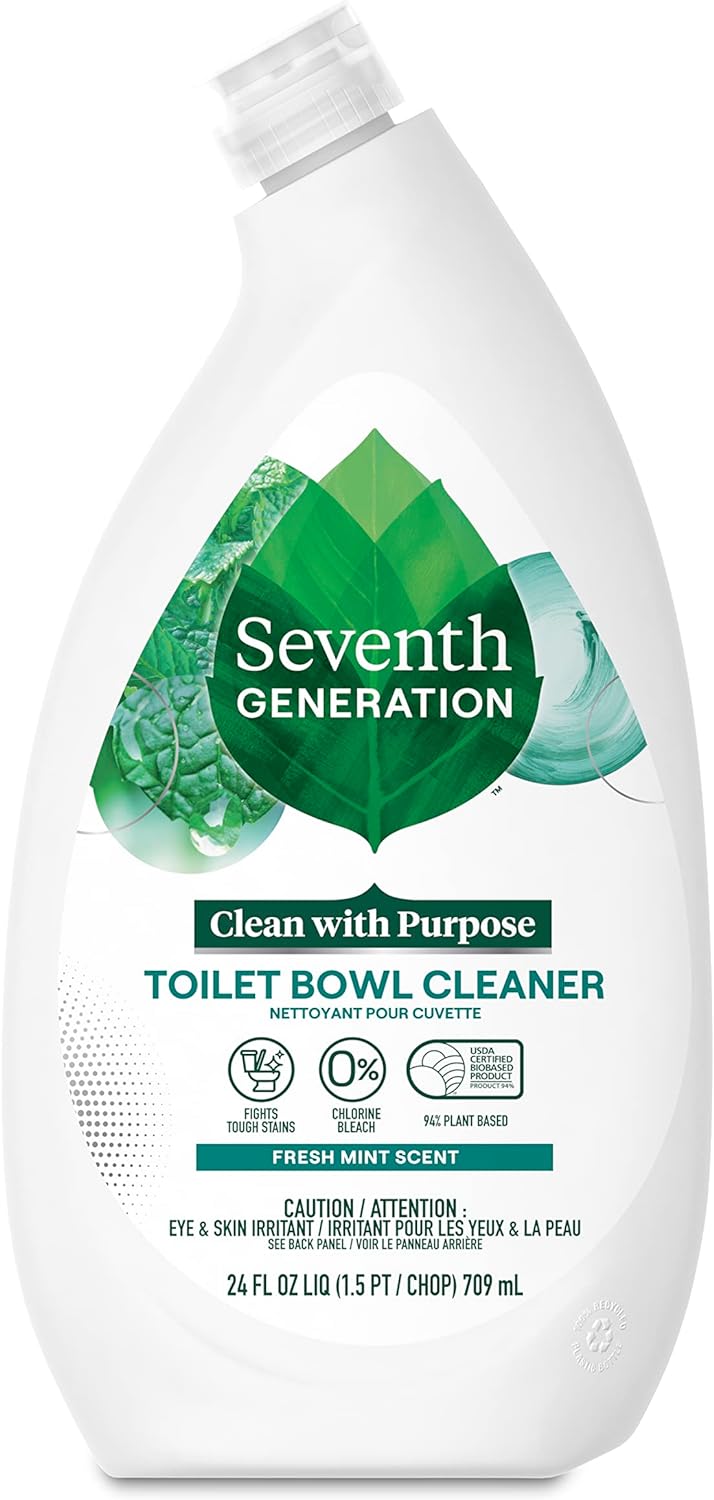
We’ve encountered Seventh Generation’s Toilet Bowl Cleaner many times. In fact, it scores an A on the Environmental Working Group’s Guide to Healthy Cleaning. It also works great, smells great, and leaves us feeling great about a product that disinfects without side effects. Its active ingredient is lactic acid, a mild acid also found in dairy products. The fragrance is derived from mint.
Get Seventh Generation’s Toilet Bowl Cleaner at Amazon for $4.39.
Related: How to Get Your Bathroom Guest-Ready in 20 Minutes or Less
